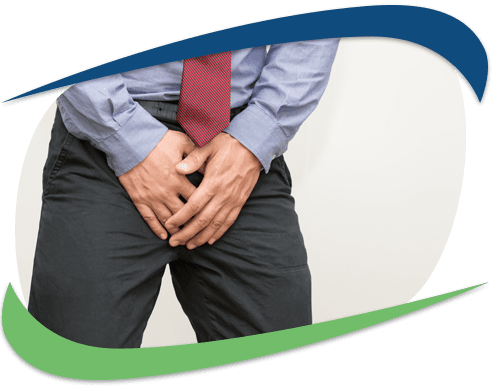Incontinence Post-Prostatectomy

Shockwave Therapy For Chronic Tendon Pain
February 18, 2021
Exercising With Chronic Pain
May 23, 2021What is a prostatectomy?
A prostatectomy is the surgical removal or all or part of the prostate gland in men and is usually done as a treatment for prostate cancer or benign prostatic hyperplasia. The surgery is usually done either with the help of a robot (RALP) or by open surgery.
As the surgery can damage some of the nerves or muscles needed for peeing, some men leak urine after the surgery. A lot of men will get their continence back after a few days but some will have problems for longer and may need physiotherapy to get the pelvic floor muscles stronger.
Are there different types of incontinence post-prostatectomy?
The answer is yes. The main one to affect men after a prostatectomy is stress incontinence. This occurs when pressure causes a little urine to leak out when you cough, sneeze or sometimes when you stand up. Some will have urge incontinence when you have to rush to the toilet and may not get there on time. Caffeine and alcohol can sometimes irritate the bladder and aggravate the urge incontinence symptoms. Dribble incontinence is a continuous leakage.
How can physiotherapy help?
A specialist men’s health physiotherapist will assess the pelvic floor muscles and make sure you can contract and strengthen them correctly. You will need to improve the strength, endurance and reaction time of the muscles and you would be given a specific programme depending on how your pelvic floor muscles are working. Pelvic floor strengthening is a proven way of treating incontinence. We will also give advice on weaning off pads, using clamps and improving your general strength and physical condition which will help your symptoms. Where possible, we will use non-invasive methods such as external palpation or real-time ultrasound.
Can I strengthen the muscles prior to surgery?
Yes, we sometimes see men pre-surgery and can start them on their strengthening programme so they can get the muscles working as soon as possible after the surgery.
Author: Linda FitzGerald MISCP



